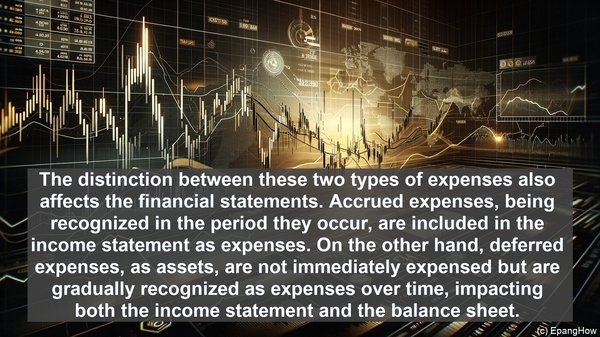Introduction: The World of Financial Terminology
Hello everyone! Welcome to our article on the intriguing world of financial terminology. Today, we’ll delve into the distinctions between two commonly used terms: accrued expenses and deferred expenses. While they may sound similar, they have distinct meanings and implications. So, let’s dive in!

Accrued Expenses: The Present Obligations
Accrued expenses refer to the costs that a company has incurred but not yet paid for. These expenses are recognized in the financial statements, even though the actual payment may happen in the future. They typically arise from services received or goods consumed during a particular accounting period. Examples of accrued expenses include salaries payable, interest payable, and taxes payable.

Deferred Expenses: The Future Investments
On the other hand, deferred expenses are costs that have been paid in advance but are yet to be recognized as expenses. These expenses are initially recorded as assets on the balance sheet and are gradually expensed over time as the related benefits are realized. Common examples of deferred expenses are prepaid insurance, prepaid rent, and prepaid subscriptions.
Timing: The Key Distinction
One of the fundamental differences between accrued expenses and deferred expenses lies in the timing of recognition. Accrued expenses are recognized when the obligation arises, irrespective of the payment timeline. In contrast, deferred expenses are initially recognized when the payment is made, but the actual expense recognition is deferred to future accounting periods.
Financial Statements: Impact and Presentation
The distinction between these two types of expenses also affects the financial statements. Accrued expenses, being recognized in the period they occur, are included in the income statement as expenses. On the other hand, deferred expenses, as assets, are not immediately expensed but are gradually recognized as expenses over time, impacting both the income statement and the balance sheet.
